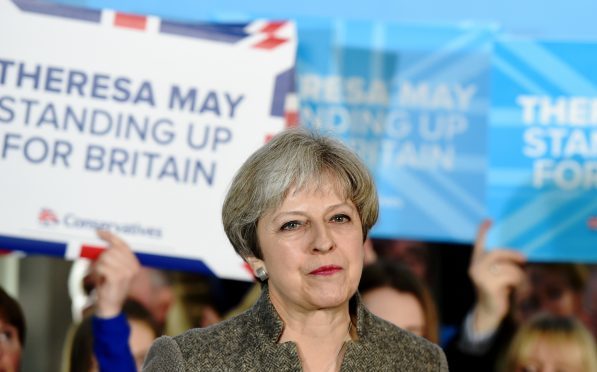Theresa May looks on course to win a landslide victory in next month’s general election after the Conservatives made huge advances in council contests across the country.
UK-wide, the Tories gained more than 550 councillors, while Labour lost over 380.
Significantly, Jeremy Corbyn’s party failed to keep control of Glasgow City Council, which it had held for nearly 40 years.
But shadow chancellor John McDonnell tried to play down the disappointment, claiming it was still “all to play for” on June 8.
The biggest casualty of the vote was Ukip, however, which was all but wiped out, its supporters turning to the Tories in their droves.
Leader Paul Nuttall said the party was a “victim of its own success” over Brexit and described losing seats to the Tories as “a price Ukip is prepared to pay” for the prize of leaving the EU.
But the SNP claimed the results showed the Conservatives had become Ukip, with Ochil and South Perthshire candidate Tasmina Ahmed-Sheikh accusing the prime minister of “cynically kowtowing to Ukip’s toxic agenda”.
As well as a strong showing across the country – notably in some previously no-go areas – the Conservatives won closely-fought battles for elected mayors in the West Midlands and Tees Valley, in Labour’s north-east England heartland.
But Mrs May insisted she was taking “nothing for granted” because there was “too much at stake”.
She said: “This is not about who wins and who loses in the local elections.
“It is about continuing to fight for the best Brexit deal for families and businesses across the UK, to lock in the progress we’ve made and get on with the job of making a success of the years ahead.
“I will continue my efforts to earn the support of you, the people.”
Mr Corbyn acknowledged Labour hadn’t performed well in parts of the country, but added: “The whole Labour movement and the British people, can’t afford not to seize our moment.”
In Scotland, where Labour came third, the Tories gained 164 seats, while the SNP lost seven.
But the nationalists emerged the clear overall winner in terms of number of councillors returned.
And despite blue pressure in target areas, like Aberdeenshire and Moray, they seem on track to remain the dominant force at Westminster north of the border.
Meanwhile, the Liberal Democrats had mixed fortunes, failing to break through against the Tories in the south-west England battleground, but making advances in some general election target areas.
Leader Tim Farron urged voters to prevent a “coronation” and said only his party stood in the way of a “one-party state”.
